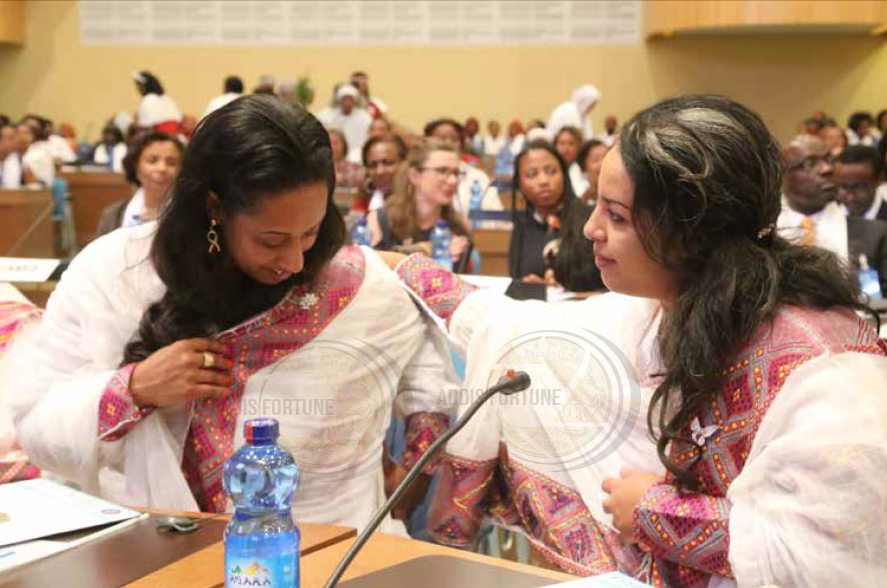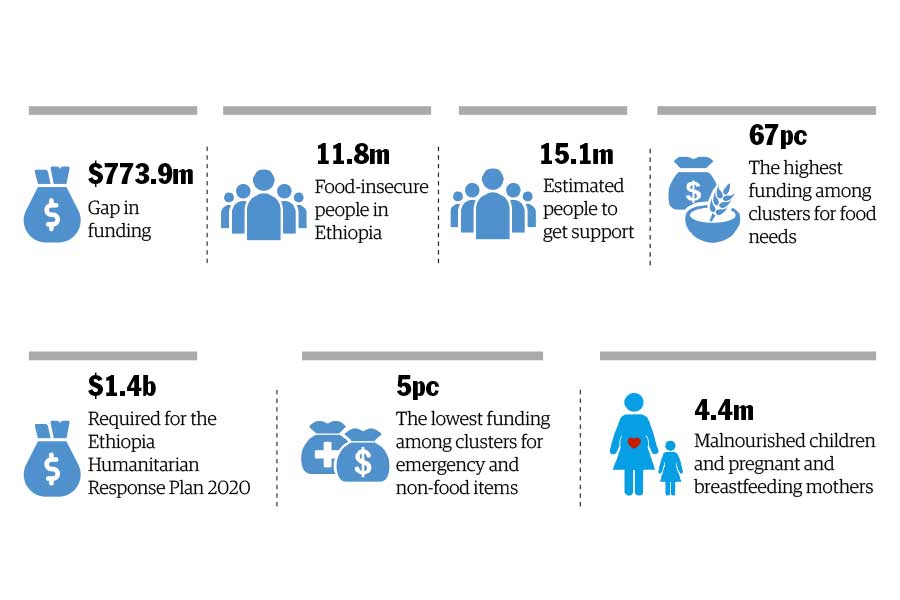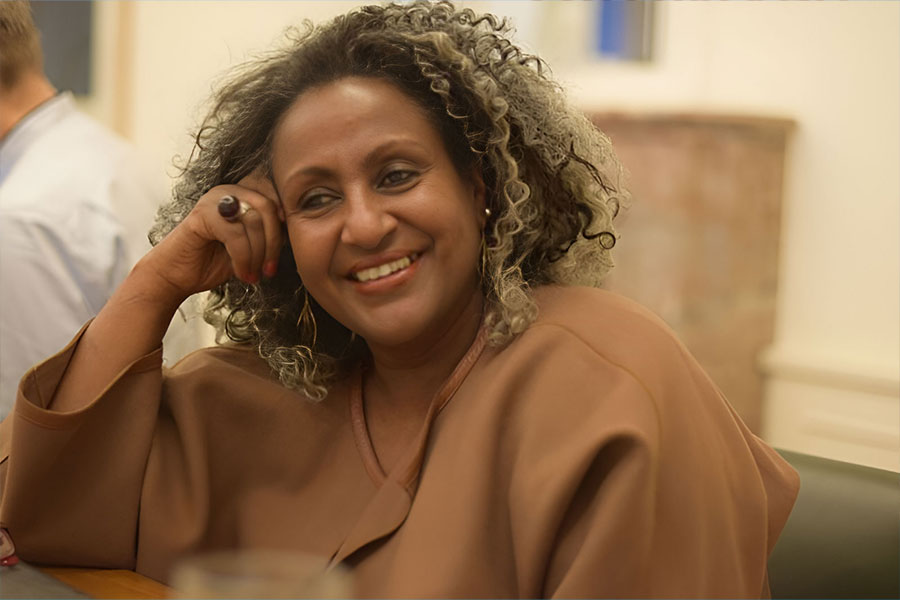
Commentaries | Mar 09,2024
Mar 23 , 2024
By Rudo Kayombo
Rudo Kayombo is a regional director of Africa at BRAC International. This article is provided by Project Syndicate (PS).
Poverty, climate change, and conflict are among the biggest challenges confronting Africa, and they all disproportionately affect women living in poverty or on the margins of society. Both research and experience have demonstrated that these women have enormous potential to improve the well-being of their families and communities.
African countries seeking to drive sustainable development – and address the triple challenge of poverty, climate change, and conflict – must help women in poverty realise their potential. By investing in and scaling up evidence-backed interventions that increase women’s control over income, ownership of productive assets, and decision-making in the household, policymakers can boost human capital, improve gender equality, and expand inclusive economic opportunities.
One approach that has been working in several countries is providing people living in extreme poverty with a productive asset (such as cows, goats, or supplies for small-scale trade like a sewing machine), support to meet their basic needs, and intensive coaching for roughly two years. Often referred to as the Graduation approach, this set of interventions was developed by the Bangladesh-based NGO BRAC to give people the multifaceted “big push” they need to escape poverty and build long-term resilience.
Women, in particular, have benefited greatly from the Graduation approach. For starters, rigorous evidence shows that it can increase women’s productivity.
In Sub-Saharan Africa and South Asia, Graduation interventions contributed to an increase in women’s off-farm enterprise employment and, thus, the labour supply. In Bangladesh, they significantly increased earnings from women-led income-generating activities. Research has also demonstrated that enabling women in extreme poverty to build sustainable livelihoods can encourage positive behaviour changes that help households prepare for and cope with temporary shocks.
A multifaceted approach that includes gender-sensitive coaching, life-skills training, and community engagement can help women in poverty overcome the psychological and social challenges stemming from gender-based discrimination, social exclusion, and limited education. Women who received psychosocial support through the Sahel Adaptive Social Protection Program reported improvements in psychological well-being and social cohesion, as well as a reduction in domestic violence. After a Graduation pilot in Kenya provided women in poverty with mentorship and training (and engaged with male community members to assuage concerns about shifting gender roles), women’s empowerment – as measured by confidence, leadership, and local committee membership – increased significantly.
Such progress in social and economic empowerment has had positive spillover effects.
In Kenya, the two-year Rural Entrepreneur Access Program (REAP) – which provided training, mentorship, and asset grants to small groups of women to start businesses – yielded substantial economic benefits for participants and their non-enrolled neighbours. This is partly because REAP increased participants' value for economic advancement, which they passed along to other women in their communities.
Recognising the importance of a big-push approach, several African governments, including Kenya, Rwanda, and South Africa, are exploring Graduation-style programs and how to incorporate them into existing systems. For example, the government of Rwanda launched a national Graduation strategy in 2022 to empower people in more than 900,000 households in poverty to develop sustainable, long-term livelihoods, as part of a broader strategy to eradicate extreme poverty by 2030.
Another evidence-backed BRAC initiative that shows promise at scale is the Empowerment & Livelihood for Adolescence (ELA) model, whereby young women and adolescent girls work with “near-peer” mentors who provide training sessions on life skills, including reproductive and sexual health, as well as financial literacy and entrepreneurship. In Uganda, adolescent girls in communities with ELA programs were more likely to earn a livelihood, while their rates of teen pregnancy and early marriage fell sharply.
The community-based model has already reached more than 200,000 participants across Liberia, Sierra Leone, South Sudan, Tanzania, and Uganda, and it is continuing to expand.
Building on these proven approaches, BRAC, in partnership with the Mastercard Foundation, has devised Accelerating Impact for Young Women. This five-year program aims to equip adolescent girls and young women with age-appropriate entrepreneurship, employability, and life-skills training, as well as the tools they need to start and scale up their businesses. In 2023 – the first year of implementation – more than 70,000 participants enrolled in the program in Liberia, Sierra Leone, Tanzania, and Uganda, and more than 630 savings groups were formed. Participants have collectively saved 140,000 dollars, and nearly 20,000 have received support to start their livelihoods.
The evidence is clear. Investing in marginalised women and girls can lead to transformative change. By embracing proven approaches, African countries can improve their economic future and help build a better, more equitable world. They already have the resources, the evidence, and the technical knowledge. All that is needed now is the political will to act.
PUBLISHED ON
Mar 23,2024 [ VOL
24 , NO
1247]


Commentaries | Mar 09,2024

Verbatim | May 03,2024

Fortune News | Nov 15,2018

Fortune News | Mar 23,2024

Radar | Dec 26,2020

Fortune News | Oct 11,2020

View From Arada | Aug 23,2025

Obituary | Apr 27,2025

My Opinion | Apr 26,2025

Radar | Jun 15,2025

Photo Gallery | 175261 Views | May 06,2019

Photo Gallery | 165485 Views | Apr 26,2019

Photo Gallery | 155795 Views | Oct 06,2021

My Opinion | 136793 Views | Aug 14,2021

Dec 22 , 2024 . By TIZITA SHEWAFERAW
Charged with transforming colossal state-owned enterprises into modern and competitiv...

Aug 18 , 2024 . By AKSAH ITALO
Although predictable Yonas Zerihun's job in the ride-hailing service is not immune to...

Jul 28 , 2024 . By TIZITA SHEWAFERAW
Unhabitual, perhaps too many, Samuel Gebreyohannes, 38, used to occasionally enjoy a couple of beers at breakfast. However, he recently swit...

Jul 13 , 2024 . By AKSAH ITALO
Investors who rely on tractors, trucks, and field vehicles for commuting, transporting commodities, and f...

Oct 18 , 2025
The political establishment, notably the ruling party and its top brass, has become p...

Oct 11 , 2025
Ladislas Farago, a roving Associated Press (AP) correspondent, arrived in Ethiopia in...

Oct 4 , 2025
Eyob Tekalegn (PhD) had been in the Governor's chair for only weeks when, on Septembe...

Sep 27 , 2025
Four years into an experiment with “shock therapy” in education, the national moo...

Oct 18 , 2025 . By NAHOM AYELE
In a sweeping reform that upends nearly a decade of uniform health insurance contribu...

Oct 18 , 2025 . By BEZAWIT HULUAGER
A bill that could transform the nutritional state sits in a limbo, even as the countr...

Oct 18 , 2025 . By SURAFEL MULUGETA
A long-planned directive to curb carbon emissions from fossil-fuel-powered vehicles h...

Oct 18 , 2025 . By BEZAWIT HULUAGER
Transaction advisors working with companies that hold over a quarter of a billion Bir...